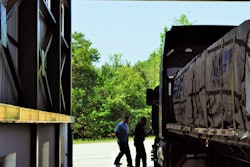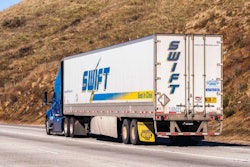Trucking news and briefs for Thursday, Feb. 4, 2021:
State trucking associations, other trucking groups urge against liability insurance hike
A coalition of more than 60 trucking-related associations penned a letter this week to the House Committee on Transportation and Infrastructure to discourage members from voting for an increase in the existing minimum liability insurance coverage required for trucking companies.
The coalition of 62 associations includes more than 20 state trucking associations, several agriculture associations and more.
“An increase in insurance requirements is wholly unnecessary, would do nothing to improve highway safety, and would have a severe negative impact on truckers, farmers, and manufacturers by significantly increasing their operational costs,” the letter states.
The letter also notes that federal research has demonstrated that an increase is not necessary, citing a study by the John A. Volpe National Transportation Systems Center in 2014, which explained, “The vast majority of CMV-caused crashes have relatively small cost consequences, and the costs are easily covered with the limits of mandatory liability insurance. A small share exceed the mandatory minimum but are often covered by other insurance or assets.”
A liability insurance increase is one of the items some believe could be explored further under the Biden Administration after an exploratory Federal Motor Carrier Safety Administration rule to evaluate the current $750,000 minimum was tabled in 2017.
Labor Dept. proposes delay of independent contractor rule
The Department of Labor is proposing in a Federal Register notice to be published Friday, Feb. 5, to delay the effective date of its final rule to define “independent contractor” under the Fair Labor Standards Act until May 7. The rule’s original effective date was March 8.
The delay follows a memo from the Biden Administration calling for certain proposed regulations to be frozen pending further review.
According to DOL, the delay would give the department’s Wage and Hour Division more time to review and consider the rule.
The rule uses five economic-reality factors to help businesses determine whether a worker is an employee or an independent contractor. Two of those factors – the nature and degree of the worker’s control over the work and the worker’s opportunity for profit or loss – are the two primary factors for determining a worker’s classification and carry greater weight than the other three factors.
The other factors include: the amount of skill required for the work; the degree of permanence of the working relationship between the worker and the potential employer; and whether the work is part of an integrated unit of production.
Averitt employees donate $1M to St. Jude
Truck drivers and other employees of Averitt Express matched their record for its largest-ever contribution, raising $1,000,001 in 2020 that was recently donated to St. Jude Children’s Research Hospital.
It marked the sixth consecutive year Averitt employees have matched or set a record in their donation to St. Jude.
The milestone was fueled by weekly contributions from Averitt employees as part of Averitt Cares for Kids, the company’s charitable employee-giving program. About 96% of Averitt associates participate, giving $1 per week to help St. Jude and other important causes.
Since Averitt Cares for Kids began in 1987, it has contributed close to $12 million overall to numerous charities, including more than $9 million to St. Jude.












